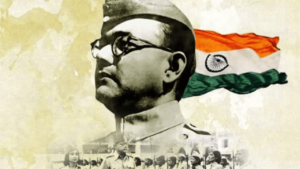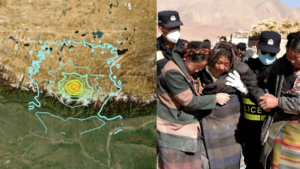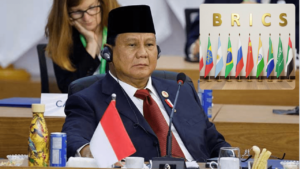Telegram CEO Pavel Durov was arrested in France on allegations of insufficient content moderation on his platform. With over 950 million users worldwide, Telegram’s encryption features have raised concerns about its use by extremist groups and criminals.

On a quiet Saturday evening, August 24, 2024, Pavel Durov, the billionaire founder and CEO of Telegram, was arrested by French authorities at Le Bourget Airport, just north of Paris. The arrest comes amid growing concerns over Telegram’s lack of moderation, which many governments claim has enabled the platform to be used for illegal activities such as cyberbullying, drug trafficking, and even terrorism.
Durov, who is known for his staunch stance on privacy and free speech, has been a controversial figure since his departure from Russia in 2014. The 39-year-old entrepreneur, often dubbed “Russia’s Zuckerberg,” built his career on creating platforms that resist governmental control. However, his refusal to censor content on Telegram has brought him into conflict with authorities worldwide, culminating in his detention in France.
Pavel Durov: The Man Behind Telegram
Born in Russia in 1984, Pavel Durov made his name at a young age by founding Vkontakte, Russia’s largest social network, which earned him the nickname “Russia’s Zuckerberg.” However, Durov’s relationship with the Russian government soured when he refused to comply with demands to provide encrypted data from the social network’s users. Facing pressure from the Russian secret service, Durov left the country in 2014, selling his stake in Vkontakte.
In 2013, Pavel Durov, alongside his brother Nikolai, founded Telegram, a messaging app that quickly gained popularity for its focus on privacy and encryption. Unlike many other platforms, Telegram has committed to never disclosing user information, a stance that has both attracted users and sparked controversies.
Telegram’s popularity skyrocketed, and it is now one of the top five most downloaded apps globally, with over 950 million active users. The platform’s key selling point is its encryption features, which ensure that users’ communications remain private, even from the platform itself. This commitment to privacy has won Pavel Durov legions of supporters who value free speech and independence from government surveillance. However, it has also made Telegram a haven for criminal activities, including the dissemination of extremist content, child exploitation, and coordination of illegal activities.
Controversies Surrounding Telegram
Telegram’s encryption features have brought it under the scrutiny of numerous governments, especially in Europe and North America. The app allows users to create groups with up to 200,000 members, a feature that has been exploited by extremist groups to spread false information, neo-Nazi ideologies, conspiracies, and terrorist content. These issues have led to mounting calls for Telegram to implement stricter moderation policies to prevent its platform from being used for nefarious purposes.
In 2018, Russia attempted to block Telegram after Pavel Durov refused to comply with a court order to give the government access to encrypted messages. The ban sparked mass protests in Moscow, with many criticizing the Russian government’s infringement on free speech. Telegram’s resistance to censorship laws earned it a reputation as a bastion of free speech, but it also put Durov at odds with governments worldwide, including France.
France has been one of the most vocal critics of Telegram’s content moderation policies. The platform’s failure to limit the spread of illegal content has led to calls for stricter regulation. In the lead-up to Pavel Durov’s arrest, European nations had begun pressing for greater oversight of platforms like Telegram that are seen as breeding grounds for criminal activity.
The Arrest: A Turning Point for Telegram
Pavel Durov’s arrest was not entirely unexpected, given the mounting legal pressure surrounding Telegram’s moderation policies. According to anonymous sources, the French Office for the Prevention of Violence Against Minors (OFMIN) issued a warrant for Pavel Durov’s arrest in connection with a preliminary investigation into multiple alleged offenses, including fraud, drug trafficking, cyberbullying, and the promotion of terrorism. His detention took place after he arrived in France from Baku, Azerbaijan, on a private jet.
While the French authorities have yet to issue an official statement, reports suggest that Durov’s arrest is tied to his failure to take sufficient action to curb criminal activities on Telegram. An investigator close to the case said, “Enough of Telegram’s impunity,” expressing surprise that Pavel Durov came to Paris despite knowing he was a wanted man.
Telegram has yet to comment on the arrest, and Durov is expected to appear in court on Sunday to address the allegations. Meanwhile, Russia’s foreign ministry announced that it is seeking clarification on the circumstances of Durov’s detention.
Implications for Telegram and Durov’s Future
The arrest of Pavel Durov marks a significant escalation in the ongoing battle between governments and tech companies over content moderation and encryption. Durov’s commitment to privacy has made him a hero to many, but it has also left Telegram vulnerable to abuse by bad actors. The question now is whether Pavel Durov’s arrest will lead to changes in Telegram’s moderation policies or if the platform will continue to resist government demands.
For Durov, the arrest could have far-reaching consequences. The investigation into Telegram’s role in enabling criminal activity is still ongoing, and it remains to be seen how Durov will respond to the legal challenges ahead. His steadfast refusal to censor content has won him admiration in some circles, but it has also made him a target for law enforcement agencies worldwide.
As Pavel Durov prepares to face a French court, the future of Telegram hangs in the balance. Will the platform be forced to comply with government regulations, or will Durov continue to fight for his vision of a free and uncensored internet? Only time will tell, but one thing is certain: Telegram’s role in the digital landscape will be under intense scrutiny in the months and years to come.
Read Next:

The Psychology of Love: Why Valentines Day Matters More Epic Than You Think
Discover the psychology of love and why Valentines Day is more important than you think. Learn how love impacts the brain, strengthens relationships, and boosts

Premier League Highlights: Arsenal Humiliate Man City 5-1, Spurs and Palace Secure Crucial Wins
Arsenal demolished Manchester City 5-1 in a statement premier league highlights win, reigniting their title hopes. Meanwhile, Crystal Palace stunned Man United 2-0, and Tottenham

How Budget 2025 Impacts the Indian Middle-Class: Major Tax Benefits and Glaring Omissions
Budget 2025 offers major tax relief to the middle class, including zero tax on incomes up to ₹12 lakh. However, it misses out on incentives

Degrees vs Employability: Why “Highly Qualified Degree Holders” Struggle to Find Jobs While “Less Qualified Individuals” Get Hired Faster!
Many highly qualified individuals struggle to secure jobs, while less qualified candidates get hired quickly. This Degrees vs Employability paradox is caused by employer preferences,

The Power of Mindset: Why Looking Poor Doesn’t Make You Poor, but Thinking Poor Does!
Discover why looking poor doesn’t define your wealth but thinking poor does. Learn the power of mindset and how a growth-oriented mindset can lead to

Overthinking: How It’s Damaging Today’s Youth – Causes and Cure in 2025
Understanding how overthinking is silently damaging today’s youth, from its causes rooted in societal pressure and social media to its long-term effects on mental health.

Netaji Subhash Chandra Bose: An Epitome of Epic Leadership
Discovering the incredible life of Netaji Subhash Chandra Bose, a leader whose vision, courage, and determination redefined India’s freedom struggle. Explore his leadership qualities, ideology,

Global News Headlines Today: From Gaza Ceasefire to Blue Origin’s Massive 2025 Milestone
Explore today’s top global news headlines, from the Gaza ceasefire and Blue Origin’s historic spaceflight to Apple losing its top spot in China’s smartphone market.

The Hidden Danger of Social Media Nudity: A Threat to Today’s Youth in 2025
Understanding how social media nudity is impacting the youth and their future potential. Learn about the risks of unregulated content, cultural sensitivities, and solutions for

FA Cup 2024: Manchester United Survive Arsenal Test to Advance in FA Cup Fourth Round
Manchester United defeated Arsenal in a thrilling FA Cup third-round encounter, with Atlay Bayindir’s heroics sealing the win. Read about key moments, standout performances, and

Supercopa de España: Barcelona Dominate Real Madrid 5-2 to Claim Supercup
Barcelona delivered a stunning 5-2 victory over Real Madrid in the Supercopa de España final. Read about the key moments, star players, and the significance

Global News Highlights Today: India’s Metro Milestone, US Aid Shift, iOS Stunning Updates and More!
Explore today’s global news highlights, including the Tibet earthquake, political tensions in South Korea, LA wildfires, US aid shifts, and India’s metro milestone. Stay informed

The Power of Keeping Plans Private in 2025: Why Silence is the Key to Achieving Your Dreams!
Discover why keeping plans private is crucial for achieving your dreams. Learn how silence boosts focus, protects momentum, and helps you achieve success without distractions

Rolls-Royce Ghost Series II Arrives in India 2025: Elegance Meets Stunning Innovation
Discover the all-new Rolls-Royce Ghost Series II launched in India, priced from ₹8.95 crore. Explore its stunning design, luxurious interior, enhanced tech features, and powerful

Global News Highlights: Earthquakes in Tibet, US Bird Flu Crisis Fatality, Brics Welcomes Indonesia in 2025, and Many more
Explore this week’s global news highlights, including the first bird flu death in the US, Indonesia joining Brics, devastating earthquakes in Tibet, rising HMPV cases

Global News Highlights: From New Orleans Tragedy to Energy Crisis, Key Stories to Start 2025
Start 2025 with a comprehensive look at global news highlights. From the New Orleans attack to Israel’s airstrikes and South Korea’s aviation tragedy, explore the
